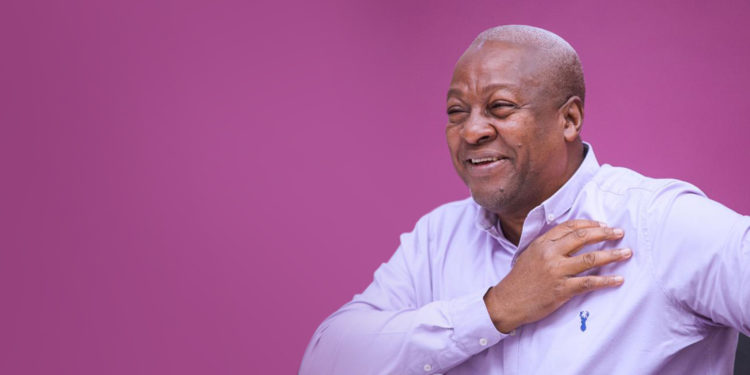Ghana must not go to the IMF again – Mahama
Erstwhile President, John Dramani Mahama, has said Ghana must not resort to the IMF for assistance again, after it concludes ongoing negotiations for an IMF programme.
According to the former president, this should be the last time Ghana goes to the IMF.
Speaking in an interview on VOA on Wednesday, October 12, Mr Mahama noted the country must create sustainable policies to keep the economy afloat without ever resorting to the IMF, blaming the prevailing economic woes on macro-economic instability and government’s borrowing spree.
“This should be the last time we go to the IMF. Going and coming really creates a certain instability in the whole system and it also reduces the faith that people have in our democracy”, he said.
Touching on the existing economic difficulties, the former President assured that the next NDC administration will roll out very robust mechanisms to deal with the crisis.
He said the party will consider measures such as a review of certain sections of the 1992 Constitution as well as the creation of an enabling domestic environment that will propel economic activities.
Mahama’s remarks come at a time when the country is experiencing high fiscal deficit, inflation, huge debt and a host of other economic challenges.
At the moment, Finance Minister, Ken Ofori-Atta is in talks with the International Monetary Fund to agree on mutual terms in a proposed IMF bailout request by Ghana.
According to government, it is hopeful of a favourable agreement with the IMF, that will help put the country’s economy on a sound footing.
6.4% GDP deficit
For the first 9-months of the year, government recorded an elevated overall cash deficit of 6.4 percent of GDP, against the revised programmed target of 5.0 percent of GDP. Total receipts of GH¢51.49 billion (8.7 percent of GDP) over the review period, fell short of projected target of GH¢60.08 billion (10.2 percent of GDP), and represented 85.7 percent of the budgeted estimate.
Total payments of GH¢89.04 billion (15.0 percent of GDP) was almost on target, representing 99.5 percent of GH¢89.46 billion (15.1 percent of GDP). The deficit of GH¢37.56 billion, together with net foreign loan repayments of GH¢3.54 billion, created a resource gap of GH¢41.1 billion, which was financed from domestic sources and use of resources from the stabilization fund.
37.2% Inflation rate
Currently, the country’s inflation rate for September has hit 37.2%; the highest in the last 21 years.
This is against the 33.9% recorded in August 2022.
According to the Ghana Statistical Service, five groups recorded inflation rates higher than the national average in September.
They were Housing, Water, Electricity, Gas and Other fuels (68.8%); Furnishings, Household Equipment and Routine Household Maintenance (51.1%); Transport (48.6%); Personal Care, Social Protection and Miscellaneous Goods and Services (42.6%) as well as Food and Non-Alcoholic Beverages (37.8%).
The implementation of the utility tariff in September 2022 also influenced the surge in inflation in Housing, Water, Electricity and other Fuels group.








